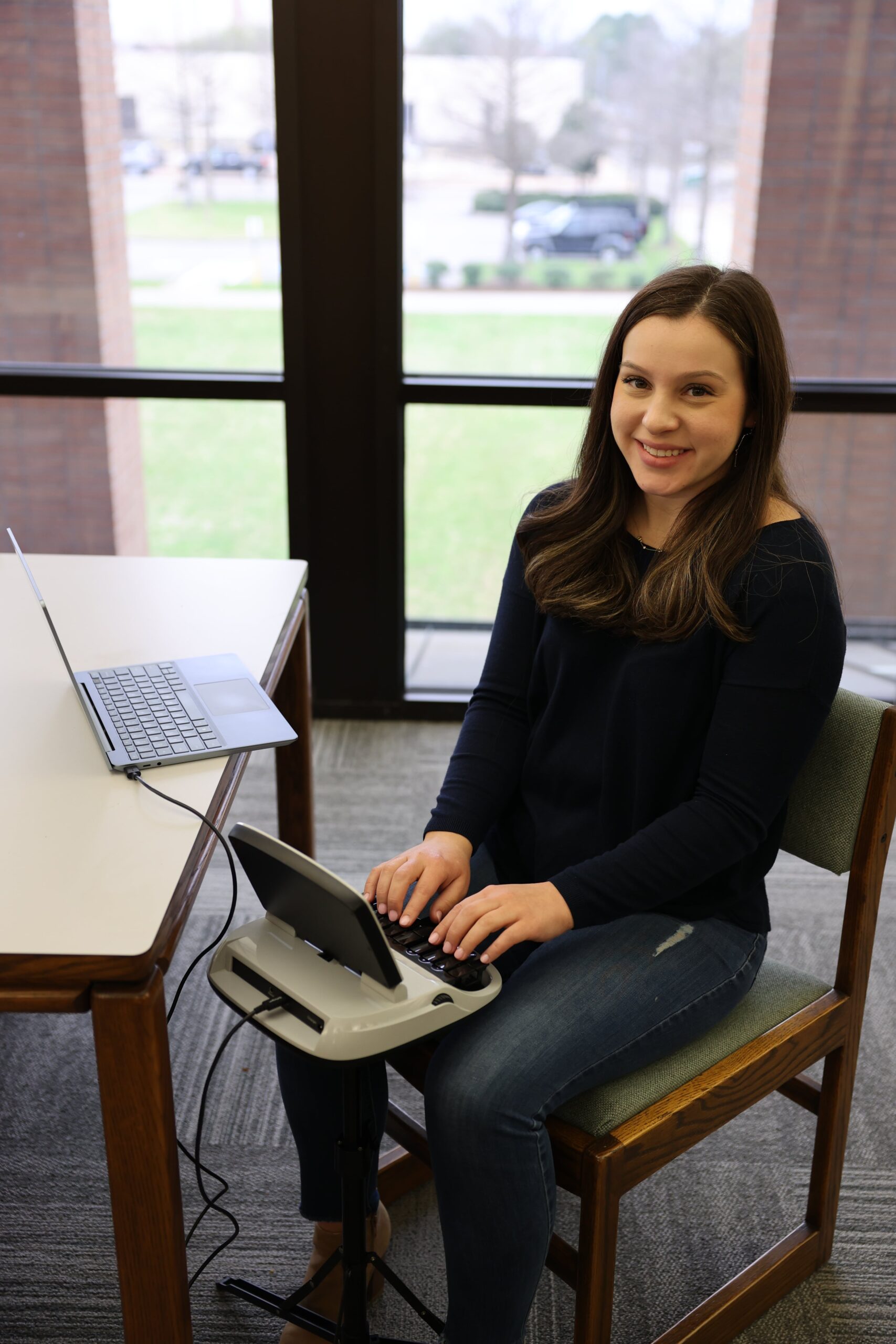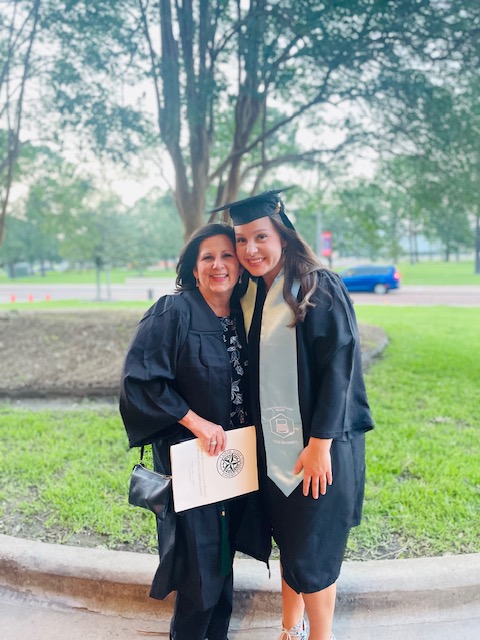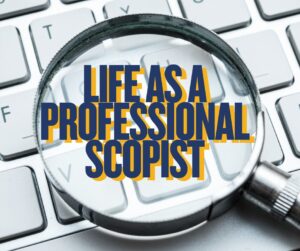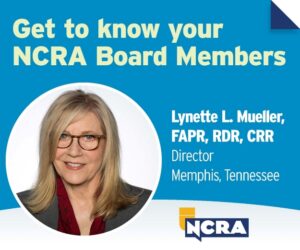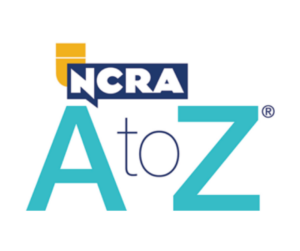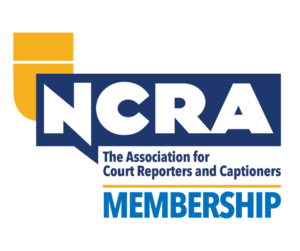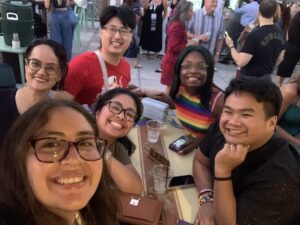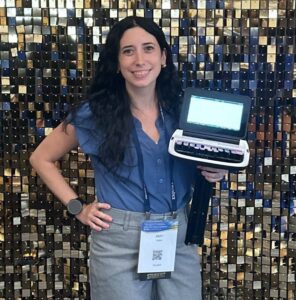“Speedbuilding can sometimes get discouraging,” says Baylee Richards, a student at Lamar State College in Orange, Texas. “But I remind myself how far I’ve come. I’ve passed speeds that at one time felt impossible. I’ve overcome things that felt too far out of reach. Court reporting school is not a race. I know my end is in sight, and I can’t wait to cross the finish line!”
UTS | What do you love about stenography?
BR | I love the challenge that is within stenography. It is a skill that not everyone can do. One of my greatest challenges starting school was, of course, learning how to write on the machine. It was scary and fascinating to me. I thought I would never be able to fully comprehend it all, but I have always loved a challenge. I am so glad I stuck with this challenge and learned this incredible skill.
UTS | What is the scariest thing about court reporting school?
BR | The scariest thing about court reporting school is not knowing when you will complete your schooling. When you enroll in a university, you typically know your graduation date. With court reporting school the finish date is determined when you finally pass your state exam. It’s scary not knowing your timeline, but it’s also one of the best things about this program because it is so flexible. I am also a wife and a mother. I am grateful that I can be flexible with school so that I can still make plenty of time to spend with my family.
UTS | How important is practice to you? What have you done to make practice a priority?
BR | Practice has become the most important thing to me. When I started school I had a newborn I was taking care of a home and was working a full-time job. I was able to juggle it all during theory, but once speedbuilding started I quickly realized that I needed more time to spend on my machine. I started working part time for a short amount of time, but then finally made the decision to stop working and be a student full time. I made my practice a priority by treating it like a job. The time I spend practicing is equivalent to the same number of hours I would spend working. This has made a huge difference in my progress. I believe that once you make something a priority, you will see results.
UTS | You won a free registration to the NCRA Conference & Expo in Louisville last summer. What was that experience like for you?
BR | Attending the NCRA Conference in Louisville on a scholarship was a huge blessing for me. I had such an amazing time, and I went home feeling motivated ready to take my exit speeds on. I met some incredible people while I was there. I went home feeling confident about my future and excited for what is coming.
UTS | What would you say to someone who is considering a career in court reporting or captioning?
BR | Anyone I meet interested in starting court reporting school I always tell them that it is not easy. This is a skill that you have to work at every day. This is not a degree or program that you can just check off boxes for. This skill requires hard work, dedication, and self-motivation. I always encourage them to give it a try!
UTS | What is your dream job? Where do you see yourself in five years?
BR | In five years I hope to be an official reporter in my local county courthouse. This is something I have dreamed about for a long time, and I hope to make this happen in the near future.
Missed previous issues of Up-to-Speed? Access them here.
